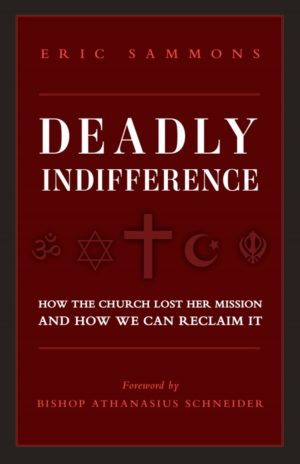|
Getting your Trinity Audio player ready...
|
The clerical sex abuse crisis hangs over the 21st century Catholic Church like a bad flu that won’t go away. Since the virus entered the public bloodstream in 2002, rarely does a month go by without some high-level figure in the Church being either indicted or associated with the scandal.
Now the focus returns to Pope John Paul II.
I say “returns” not because there has been previous evidence that the pontiff himself engaged in any abuse or directly covered up abuse under him, but because the whole scandal was rampant and then broke into the open under his long pontificate. Whether fairly or not, the scandal will always be attached in some way to the Polish pope.
Orthodox. Faithful. Free.
Sign up to get Crisis articles delivered to your inbox daily
Of course, the abuse crisis predates John Paul’s reign. While we don’t have much evidence from before the 1950’s, it’s clear that predator priests and silent bishops existed before 1978. Now, a journalist claims that John Paul II was one of those silent bishops.
According to a Dutch reporter Ekke Overbeek, John Paul II covered up abuse while leading the Archdiocese of Kraków from 1964 to 1978. Overbeek claims, “I found concrete cases of priests who abused children in the Archdiocese of Kraków, where the future pope was archbishop. The future pope knew about it and nevertheless transferred those men. That led to new victims.”
This isn’t the first accusation of inaction and silence regarding John Paul II, but it’s the first related to his time as Archbishop. When he was pope, John Paul II allowed the demonic founder of the Legionaries of Christ, Fr. Marcial Maciel, who abused countless people, to thrive for many years. It was only later in his papacy—and under the urging of Cardinal Ratzinger—that Maciel’s crimes were finally exposed and acted upon.
In addition, the monster Theodore McCarrick rose to prominence under John Paul II. While abusing seminarians and other young men, McCarrick went from a lowly priest to one of the most powerful princes of the Church…almost exclusively during the pontificate of John Paul II.
Because of these sad realities, a certain pall hangs over the John Paul II pontificate, despite his canonization in 2014, just nine years after his death. Because of the sex abuse scandal during JPII’s reign, a certain pall hangs over his pontificate, despite his canonization in 2014, just nine years after his death.Tweet This
But are the most recent accusations credible? Are they even believable about a man almost universally acknowledged as saintly?
We can’t know for sure at this point, but it would be naive to assert that the claims are impossible. Three factors should make us at least pause before offhandedly dismissing them.
First, we need to put ourselves in the shoes of prelates who ruled in the 1960’s. Their knowledge of pedophilia, ephebophilia, and homosexuality were limited at best. At that time, few people understood the psychological disorders behind them. When a priest said, “I’ll never do it again,” a bishop didn’t realize that such a statement could not be believed, even if the priest himself was sincere in his desire for reform. Likewise, when a counselor said a pedophile was “cured” and could return to ministry, there was no reason for a bishop to dispute this.
Second, the culture of the Church at that time leaned strongly toward protecting the institution above all else. While this might seem self-centered in today’s age, good men bought into that attitude, for fear of losing souls through scandal. Although some bishops may have been more worried about their own reputations, many sincerely thought that the revelation of scandals could cause souls to be eternally lost, and that that evil outweighed other considerations.
Finally, John Paul himself had experience with false accusations being made against priests by authorities. It was not uncommon in Communist Poland for government officials to accuse a priest of sexual abuse in order to remove him from ministry. An accusation could not be taken at face value. It may have been difficult, then, for Archbishop Wojtyla to credit claims of priestly sexual abuse as legitimate.
None of these factors totally excuse the prelates of the time of covering up abuse, including John Paul II if he did so. But they help us understand a time very different from ours. Obviously, a priest who abuses a young person should have always been considered automatically and permanently disqualified from any further ministry, but that’s much more clear to us today than it was in years past.
By this author:
-
Deadly IndifferenceProduct on sale$9.95 – $10.00
The Polish bishops raised a number of these points in their response to the recent accusations. But notably they didn’t directly address the actual claims, instead defending John Paul II’s record as pope, not Archbishop of Krakow. Further, they fell into the error of assuming any accusation against a Church leader must be driven by a hatred of Catholicism and its teachings. We should all know by now that many accusations are brought forward based on love of the Church, not hatred. And anyway, even if the motives behind them are suspect, all accusations must be taken seriously, no matter the source.
So, if these accusations are true, how do they affect John Paul II’s legacy? As I noted, his pontificate is already deeply associated with the abuse crisis. But proving these recent claims would further strengthen that attachment, as it would show that John Paul II didn’t just mishandle cases as the pope, but was actually directly negligent when he was a bishop.
It’s undeniable that John Paul II was a great man. He influenced millions and changed the course of history almost single-handedly. Yet great men are also complex men, often with significant faults that go along with their significant talents. Catholics devoted to his man need to realize that he was flawed like the rest of us. We can’t shield ourselves from potential bad news regarding John Paul II, even if he was influential in our own lives (I am one of many who became Catholic partly under that influence).
One thing this incident does reveal is the wisdom of waiting to canonize potential saints. There’s no reason to rush forward with canonization, as was done with John Paul II. Even though the people might cry “Santo Subito!” in the streets, Church leaders should be more dispassionate, letting time reveal all the details of a candidate’s life. A minimum waiting time of 50 or even 100 years before canonization would not be unreasonable.
Sadly, the clerical sex abuse crisis impacts every Catholic, whether or not he has personal experience of abuse. Many men once greatly admired have been revealed as frauds, and even good men have had their weaknesses brought into the public for all to see.
I still consider John Paul II a great man, and he did some wonderful things as pope. Our Catholic faith, however, does not rest on whether a pope is a good pope or a bad pope, or if he has a good record when it comes to dealing with abusive priests and bishops. Our faith instead must rest on the one good man, Our Lord Jesus Christ, who is the only one who will never disappoint us.

